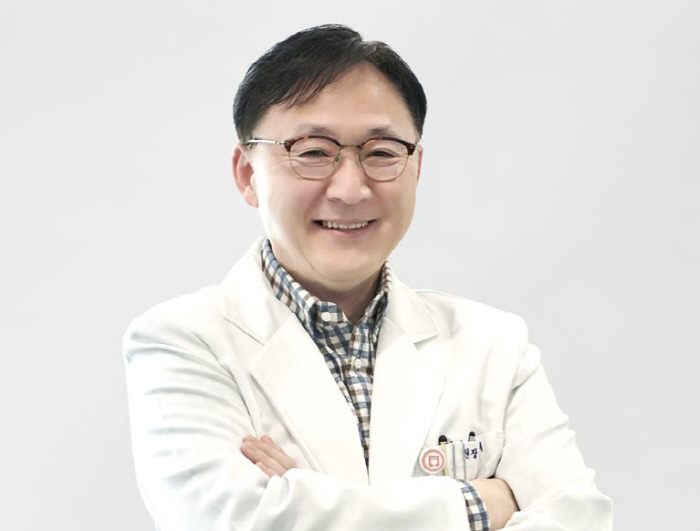People with musculoskeletal disorders need to improve discharge-linked services
The Seoul Metropolitan Government's Seonam Hospital (Hospital Director Chang Sang-hae) Public Medical Center published a paper on the experience of users and providers of discharge-linked services for musculoskeletal disorders through the latest issue of the journal of the Korea Institute for Health and Social Affairs 'Health and Social Research', emphasizing the importance of improving and standardizing discharge-linked services for musculoskeletal disorders.
The study was conducted to find practical ways to improve discharge-linked services that help patients hospitalized for musculoskeletal diseases return to the community stably and receive continuous management after discharge.
The study was conducted in a qualitative research method that conducted in-depth interviews with 15 musculoskeletal patients who used discharge-linked services and 10 nurses and medical social workers who provided the services at Seonam Hospital.
As a result of major studies, patients, who are users, answered that they felt difficulties in lack of information and service complexity when using discharge-linked services, and expressed great satisfaction in customized counseling and emotional support. In addition, it said that rehabilitation and door-to-door care services are most needed after discharge, which became an important clue to understanding what resources patients actually needed.
In addition, service providers cited the absence of a caring family or economic difficulties as major obstacles to patients' return to the community, emphasizing that multidisciplinary cooperation and community resource linkage are essential to service success, and revealing that standardized guidelines and securing professional manpower are important support systems for a successful return.
In the end, this study confirmed that in order to increase the effectiveness of the discharge-linked service, it is essential to provide sufficient information to patients and families from the beginning of ▲ hospitalization, strengthen multidisciplinary cooperation between ▲ medical staff, optimize ▲ connection with community resources, and ▲ strengthen the ability of patients to manage their own health. In particular, it contains implications that it is important to reduce the difference in perception between users and providers and provide personalized services.
Chang Sang-hae, director of Southwest Hospital, who has been reducing the need for practical medical services based on the treatment experiences of numerous patients in public medical fields, especially in emergency rooms, said "This study contains the deep thoughts and efforts of Southwest Hospital to help patients with musculoskeletal diseases stay healthy and live in the community after discharge.""Based on the research results, we will listen more to the voices of patients and their families, strengthen customized discharge-linked services, and lead the community-linked model as a responsible medical institution in the southwestern part of Seoul." he said.
Corresponding author of the study, Kwak Eun-young, head of the public medical department at Seonam Hospital in Seoul, once again confirmed that close cooperation between the hospital and the community is essential for the successful return of patients with musculoskeletal disorders to the community"We will work harder to standardize services and train professionals so that the difference in perception between users and providers revealed in this study can be reduced and practical support suitable for each patient's situation is provided."
The study was conducted to find practical ways to improve discharge-linked services that help patients hospitalized for musculoskeletal diseases return to the community stably and receive continuous management after discharge.
The study was conducted in a qualitative research method that conducted in-depth interviews with 15 musculoskeletal patients who used discharge-linked services and 10 nurses and medical social workers who provided the services at Seonam Hospital.
As a result of major studies, patients, who are users, answered that they felt difficulties in lack of information and service complexity when using discharge-linked services, and expressed great satisfaction in customized counseling and emotional support. In addition, it said that rehabilitation and door-to-door care services are most needed after discharge, which became an important clue to understanding what resources patients actually needed.
In addition, service providers cited the absence of a caring family or economic difficulties as major obstacles to patients' return to the community, emphasizing that multidisciplinary cooperation and community resource linkage are essential to service success, and revealing that standardized guidelines and securing professional manpower are important support systems for a successful return.
In the end, this study confirmed that in order to increase the effectiveness of the discharge-linked service, it is essential to provide sufficient information to patients and families from the beginning of ▲ hospitalization, strengthen multidisciplinary cooperation between ▲ medical staff, optimize ▲ connection with community resources, and ▲ strengthen the ability of patients to manage their own health. In particular, it contains implications that it is important to reduce the difference in perception between users and providers and provide personalized services.
Chang Sang-hae, director of Southwest Hospital, who has been reducing the need for practical medical services based on the treatment experiences of numerous patients in public medical fields, especially in emergency rooms, said "This study contains the deep thoughts and efforts of Southwest Hospital to help patients with musculoskeletal diseases stay healthy and live in the community after discharge.""Based on the research results, we will listen more to the voices of patients and their families, strengthen customized discharge-linked services, and lead the community-linked model as a responsible medical institution in the southwestern part of Seoul." he said.
Corresponding author of the study, Kwak Eun-young, head of the public medical department at Seonam Hospital in Seoul, once again confirmed that close cooperation between the hospital and the community is essential for the successful return of patients with musculoskeletal disorders to the community"We will work harder to standardize services and train professionals so that the difference in perception between users and providers revealed in this study can be reduced and practical support suitable for each patient's situation is provided."
|
This article was translated by Naver AI translator.




